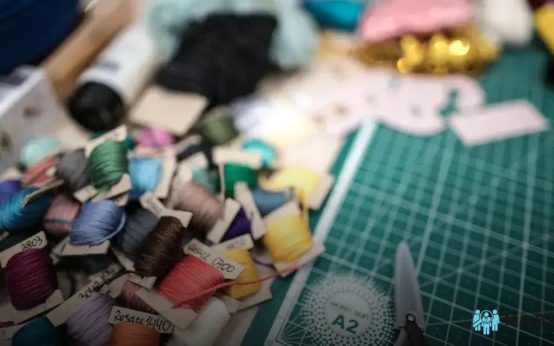Turning a hobby into a career can be a thrilling and fulfilling journey. Many people dream of transforming their passion into their profession, but few know where to start. Identifying your passion is the first step, and it could be your key to a successful and satisfying career. Once you know what drives you, researching the market and understanding demand becomes crucial. Skills and training are often necessary to turn talent into a viable product. To truly stand out, building a personal brand and mastering networking and marketing strategies can make all the difference.
Identifying Your Passion
One crucial step in turning a hobby into a successful career is identifying your passion. This is where you must dig deep and understand what truly drives and excites you. Begin by examining your interests and activities that make time fly by. Consider asking yourself questions like, “What do I enjoy doing in my free time?” or “What activities do I find most rewarding?”
Reflect on Your Experiences
Think back on your past experiences, both personal and professional. Take note of moments when you felt most fulfilled or accomplished. Often, these instances align with your genuine passions. Engage in self-reflection or even journaling to capture these insights.
Ask for Feedback
Seeking external feedback can also be enlightening. Sometimes, our friends or family can pinpoint passions that we might overlook. Ask trusted peers about skills or activities they associate with you, which might provide a fresh perspective.
Explore and Experiment
Don’t hesitate to explore new areas or even experiment with different hobbies. Sometimes, passions develop from new experiences and can surprise you. Engaging in a variety of activities can help you confirm what truly captures your heart.
By thoroughly identifying your true passion, you lay the groundwork for a fulfilling career transition. This self-awareness not only guides your future decisions but also fuels the motivation needed to turn your hobby into a thriving profession.
Researching the Market
Understanding the marketplace is crucial when turning your hobby into a career.
Analyze the Competition
Begin by looking at existing players in your field. Identify their strengths and weaknesses and what sets them apart from others. This will help you carve out your unique niche. Search for Trends Stay up-to-date with the latest market trends. Utilize tools like Google Trends or industry reports to identify rising interests and demands in your hobby sector. This will give you a competitive edge and inform your strategy.
Target Audience
Who is most likely to buy your products or services? Create detailed profiles of your potential customers, including age, gender, interests, and purchasing behaviors. Tailoring your offerings to their preferences can amplify your success. Evaluate Demand Assess whether there is a sustainable demand for your hobby in the market. Conduct surveys, engage in forums, and listen to feedback from your audience to gauge their interest. This step ensures that you are investing in an area that has growth potential.
Set Clear Goals
Establish realistic objectives for your business endeavor. Consider the scope of your market reach and scalability options to ensure a thorough approach. Comprehensive market research not only fuels your passion but also lays a strong foundation for a successful career shift.
Skills and Training
Turning your hobby into a career often requires specific skills and training. To begin, identify the core skills needed in your new professional field. This could involve technical skills, like coding or graphic design, or soft skills, like communication and problem-solving. Consider what gaps you may have in your current skill set and create a plan to address them.
Online courses and workshops are excellent resources for gaining new skills. Platforms like Coursera, Udemy, and Skillshare offer a plethora of courses that range from beginner to advanced levels. Many of these courses are self-paced, allowing you to balance learning with other responsibilities.
Practicing and applying new skills is crucial. Engage in hands-on projects that allow you to put theory into practice. This could be starting a personal project, contributing to open source, or even redesigning elements of your portfolio. The goal is to gain practical experience that you can showcase to future employers or clients.
Don’t underestimate the value of
certifications and credentials
. Earning a certification can not only boost your confidence but also enhance your credibility within your chosen industry. Research what certifications are respected in your field and work towards achieving them.
Finally, stay updated with industry trends. Subscribe to relevant blogs, podcasts, and publications to keep your knowledge current. This habit will ensure that your skills remain relevant and highly sought-after as you transition your hobby into a full-fledged career.
Building a Personal Brand
Creating a personal brand is essential when transforming your hobby into a career. It helps in distinguishing yourself in the vast marketplace, enabling you to stand out from the crowd. A personal brand is more than a logo or a flashy website; it is the embodiment of who you are, what you stand for, and the value you bring to others.
Begin by defining your unique selling proposition (USP). This involves identifying what makes your hobby unique and how it can fulfill others’ needs. Consider the skills you’ve acquired over time and your personal story. These elements will form the foundation of your brand identity.
Next, ensure that your online presence accurately reflects your brand. This includes crafting a professional bio that highlights your strengths and passions, along with a portfolio showcasing your best work. Social media platforms can be powerful tools to demonstrate your expertise and build a following. Regularly update your profiles to stay relevant and engage with your audience actively.
Furthermore, consistency in messaging and visuals is key to reinforcing your brand. Whether it’s the colors you choose or the type of content you share, everything should align with the image you want to project. This is how you build trust and recognition over time.
Lastly, consider seeking endorsements or testimonials from satisfied clients or mentors. Positive feedback from others can significantly enhance your credibility and attract new opportunities. Remember, building a personal brand is an ongoing process that requires dedication and authenticity.
Networking and Marketing Strategies
In order to successfully turn a hobby into a career, developing effective networking and marketing strategies is crucial. Building strong connections within your industry can provide insights into opportunities and trends. Attend industry events, join online communities, and engage in conversations relevant to your field.
Utilize social media platforms
to showcase your work and connect with like-minded individuals. Creating a professional online presence can attract potential clients or employers.
Collaborate with other professionals to broaden your reach. Partnerships or joint projects can expose you to new audiences and provide valuable experience. Consider offering workshops or webinars to share your expertise with a broader audience.
Marketing your skills effectively is also key. Develop a clear message that communicates the value you bring to clients or employers. Utilize content marketing by sharing articles, tutorials, or videos that highlight your expertise. Engage with your audience through newsletters or blogs, and consistently update your portfolio with recent projects. By leveraging both networking and marketing strategies, you can effectively transition your hobby into a rewarding career.




